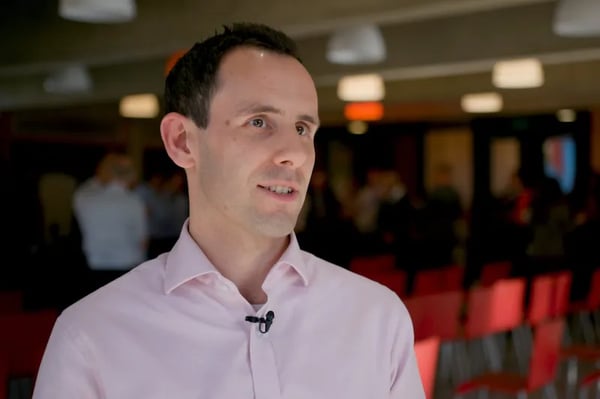London’s CDO is preparing the city for future innovation
The Chief Digital Officer of London has highlighted how he is preparing the city for future innovation.
Theo Blackwell wrote a blog post detailing plans to deliver a new public digital infrastructure for Londoners that will '"fix the plumbing" and lay the groundwork for future innovation.
“London’s new public digital infrastructure is a term we’re adopting at City Hall to describe core smart city work by the Mayor of London and partners to prepare for future innovation at a scale that can truly benefit Londoners,” the CDO states.
London’s city-regional authority governs over 9 million people. The plan is to build strategic capability through better digital connectivity, collaboration and joined-up city data to address the challenges faced by those living in the city, including climate change and advances in AI.
Digital connectivity
Step one in London’s digital infrastructure project is the establishment of a new connectivity infrastructure.
The Connected London team is facilitating agreements between London boroughs and network operators to power gigabit broadband to homes and businesses and enable 5G mobile. Currently, 24 boroughs with the highest concentrations of social housing have signed such agreements, with the remaining boroughs expected to do the same by 2025.
Additionally, Transport for London (TfL) has partnered with Boldyn Networks to lay a new full fibre spine using TfL’s tunnels and street assets - enabling 4G and connectivity 5G for Tube passengers and paving the way for future deployment of sensors, CCTV and other applications, Blackwell states.
Fostering collaboration
Another aspect is the establishment of new digital institutions that foster collaborations.
Blackwell highlighted the role of the London Office of Technology and Innovation as a platform for collaboration among London boroughs, pointing to a number of digital inclusion programmes launched by them, including Get Online London and the Good Things Foundation.
Other collaboration initiatives are underway: City Hall’s open calls to the tech sector aims to address specific challenges faced by the city and SHIFT, which was established in 2022 and is based in the Olympic Park, provides a living testbed for companies to test and scale technologies.
Another important aspect is ensuring citizens' voice is heard. Online engagement with Londoners will be improved, expanded and diversified through Talk London, a platform that allows people to discuss issues and participate in the improvement of their neighbourhoods
Joining-up city data
A new approach to linking city data will also form part of the city’s new critical digital infrastructure, according to Blackwell.
To further enhance data utilisation, City Hall is developing a new city data platform called Data for London. This will replace the London Datastore, allowing easier access to, and discovery of, datasets across the city.
As part of this, a Data Users Community is being established for the first time. This is to ensure that, as the new data platform is being developed, the needs of users are met.
Paving the way for AI
London’s new digital infrastructure will act as a platform for emerging technologies like AI, Blackwell explains.
As the deployment of AI accelerates, the focus will be on “collaboration, user-centred design, and ethical considerations” rather than “show-stopper technological solutions” which don’t meet user needs, Blackwell says.
Ongoing initiatives, including the UK Local Digital Declaration and London’s Emerging Technology Charter, will ensure that ethical practices and public engagement are prioritised.
‘Fixing the plumbing’
London’s strategic approach to building a robust public digital infrastructure is about "fixing-the-plumbing" and sets the stage for further innovation, Blackwell states.
“While much of this may be under the radar, the city’s focus on connectivity, collaboration and responsible data use has already yielded positive results, benefiting Londoners in many ways. But by defining urban problems and starting to understand user needs better (and more methodically), embracing innovation and leveraging data and technology London we are convinced we can build a fairer, greener and more equitable city for all our residents.”






